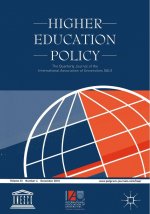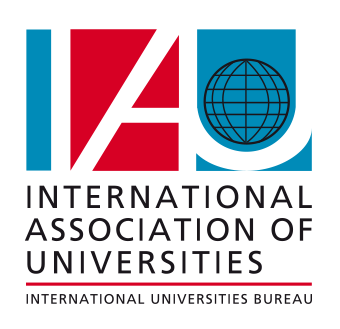The Global Voice of Higher Education
|
Home > Knowledge hub > Publications > Recent Publications Prize Essay Competition 2016-2017 |

Every two years and with funding provided by Palgrave Macmillan, the publishers of HEP, IAU holds a prize essay competition open to researchers, scholars, administrators and teachers from amongs our members. The recent competition was entitled Higher Education and Research for Sustainable Development: A New Academic Discipline? and was held in collaboration with the COPERNICUS Alliance - an affiliate member of IAU.
In this edition, two papers were each to receive a monetary prize of 2000€, and would also be considered for publication in Higher Education Policy. We are pleased to announce that two papers have now been selected to receive the prizes and they will appear in Online First at the beginning of November, and will also appear in print in December’s issue of HEP (31/4). Furthermore, we are equally pleased to inform you that a third paper which, although not eligible for the prize, was retained for publication in HEP. The paper, co-written by Mara Bauer from Universität Vechta, Germany was entitled Sustainability Governance at Universities: Using a Governance Equalizer as a Research Heuristic can be viewed here.
Winning Papers
The winning essay from an IAU Member institution is entitled Towards a Definition of Environmental Sustainability Evaluation in Higher Education , co-written by David Alba Hidalgo, Javier Benayas del Álamo and José Gutiérrez Pérez, representing the Association for Ecology and Education for Sustainable Cities - Transitando, of the Autónoma University of Madrid and the University of Granada, Spain.
The winning essay from a Member of the COPERNICUS Alliance is entitled Mainstreaming Education for Sustainable Development at a Swiss University: Navigating the Traps of Institutionalization , co-written by Lilian J. Trechsel, Anne B. Zimmermann, David Graf, Karl Herweg, Lara Lundsgaard-Hansen, Lydia Rufer, Thomas Tribelhorn and Doris Wastl-Walter, all from the University of Bern, Switzerland.
Abstracts
Towards a Definition of Environmental Sustainability Evaluation in Higher Education
Sustainability is increasing their presence at Universities, so it is convenient to reflect on the impact and effectiveness that university sustainability actions are having. Several authors have recognized mature experiences about environmental sustainability in the different dimensions of higher education: teaching, research, operations and outreach. Assessment of university sustainability is an emerging field of research of Education for Sustainable Development in Higher Education, because of the use by universities of assessment tools to improve the performance of its policies, but also to disseminate their results. This paper will try to define what is meant by "assessment of university environmental sustainability" based on different evaluation approaches found in an integrative meta-analysis of specialized literature on the subject and review of assessment tools. While the most common evaluative approach is the self-assessment, to improve the implementation of policies, other approaches aimed at promoting university activity in sustainability through its participation in rankings or accreditation system increasingly are becoming greater presence. This leads to identify a particular concern among Universities to compete and appear in the university context as “sustainable” without ensuring that their actions are being designed really to improve sustainability, at a university and global context.
Mainstreaming Education for Sustainable Development at a Swiss University: Navigating the Traps of Institutionalization
How far have higher education institutions progressed towards integrating sustainable development at an institutional level and are they responding to the societal need for transformation? Can the pace of transformation be accelerated, given the urgency of the issues our world is facing? As a practice-oriented contribution to this broader debate – still open despite progress achieved during the Decade of Education for Sustainable Development (2005-2014) – this article discusses a mainstreaming strategy applied to teaching at a higher education institution in Switzerland, the University of Bern. We analyse the traps of institutionalizing sustainable development (SD) in a higher education institution and clarify the policies and approach to change management needed to navigate these traps, based on an analysis of our experience as an education for sustainable development team. We propose 1) using a combined top-down and bottom-up policy to increase motivation, 2) prioritizing and sequencing target groups and helping them to find the link between their discipline and SD, and 3) offering tools, support, and professional development to help lecturers to move towards a more competence-oriented form of teaching. Concrete support needs to take place at four levels: the level of formulating competences for SD; the level of shifting towards a learner-centred approach; the level of designing their learning environments; and the level of becoming a community of practice. An impact chain explains the logic from concrete activities (tools, courses, workshops, etc) to the desired impact of helping lecturers and graduates to become agents of change capable of playing a key role in society and helping to shape our future.
| NGO in official partnership with UNESCO in associate status |
| International Association of Universities, UNESCO House, 1 rue Miollis, 75732 Paris cedex 15, France |
| Contact | Sitemap | Terms of use | Credits |



